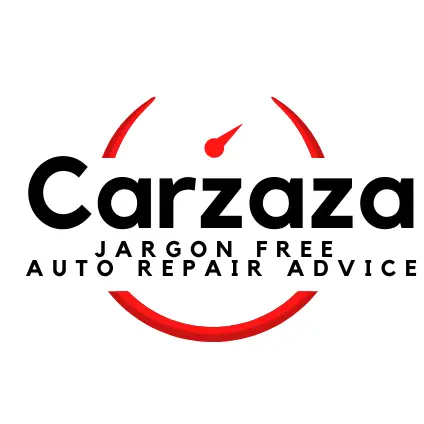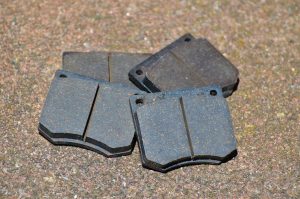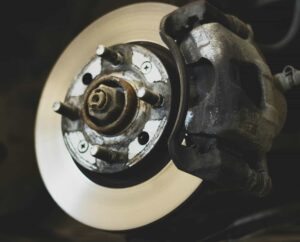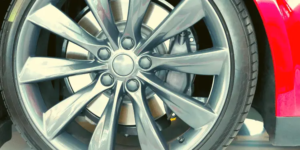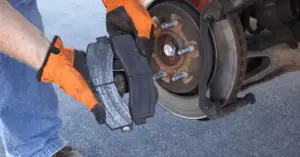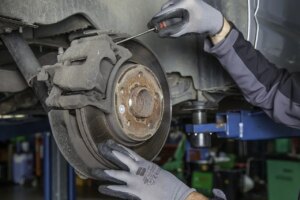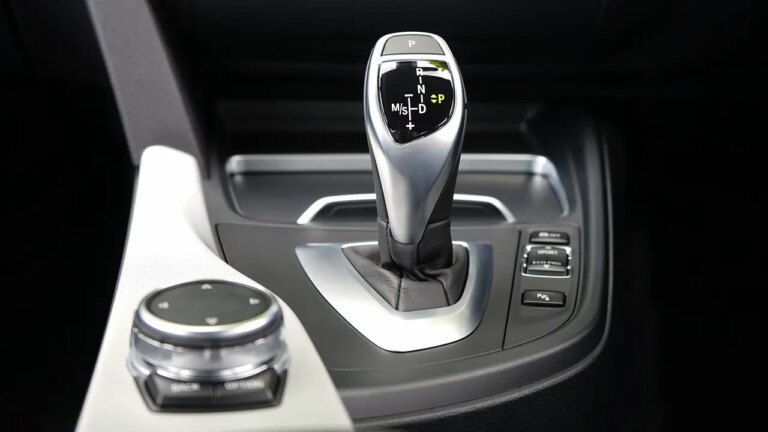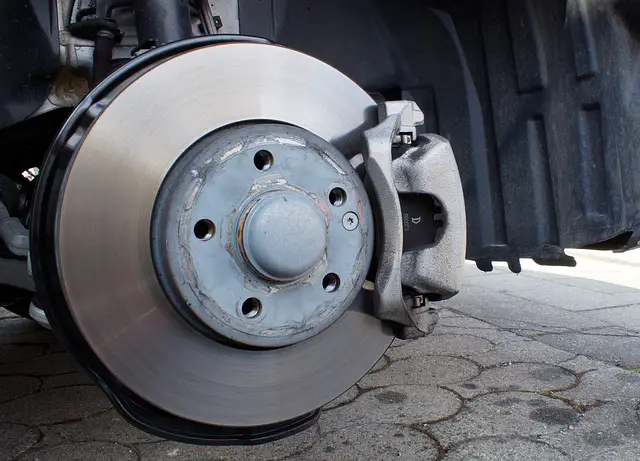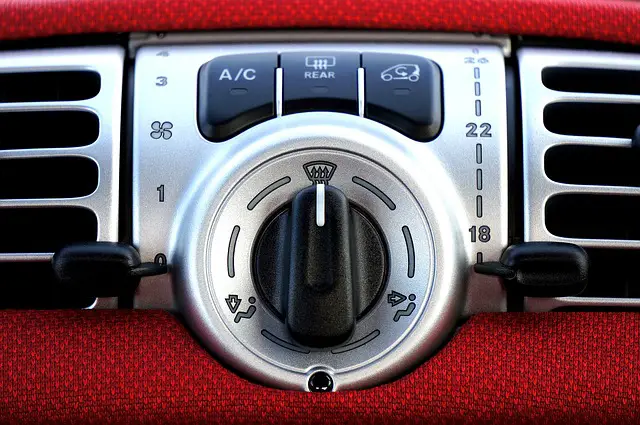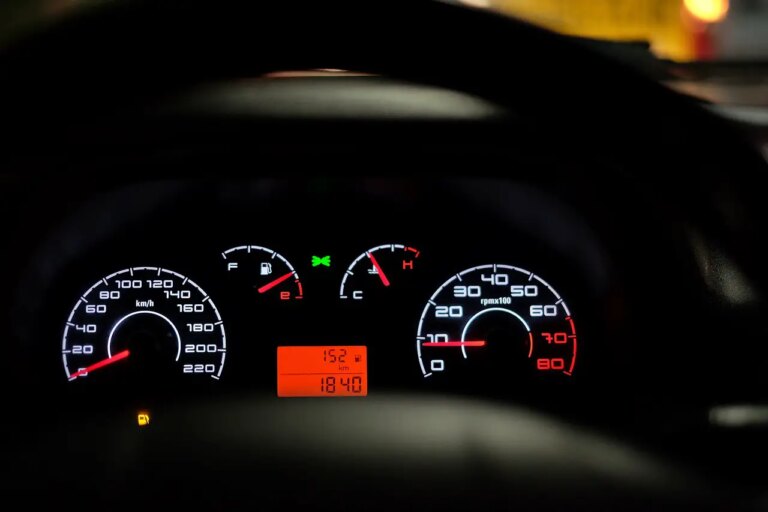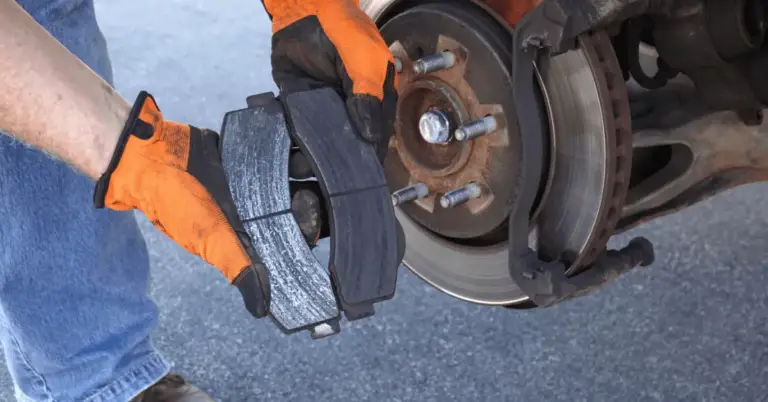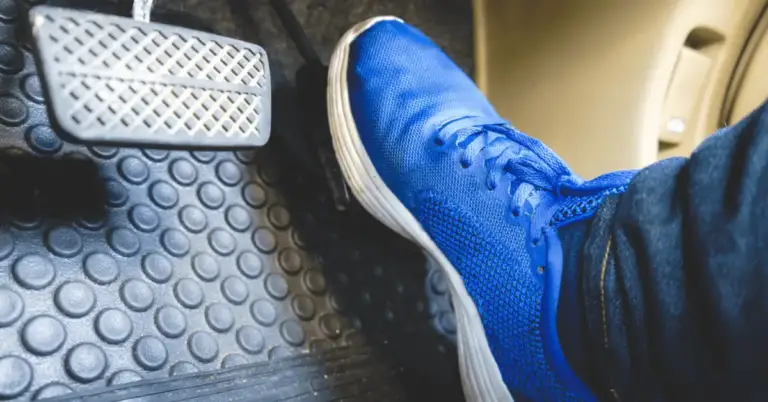It’s very annoying when you’ve paid over your hard-earned cash getting new brakes only to find out they make a grinding noise.
If you got them changed by a mechanic, you might even doubt he replaced any parts and instead just took your money.
I’m sure this does happen – albeit very rarely – but there are more likely reasons we’ll explore in the article.
The two most common reasons are
Brake pads require a short period of bedding, and it’s normal for them to grind for 100 miles. A lot of dirt is disturbed during the change and, if left in situ, can get stuck between the rotor and the pad and cause noise.
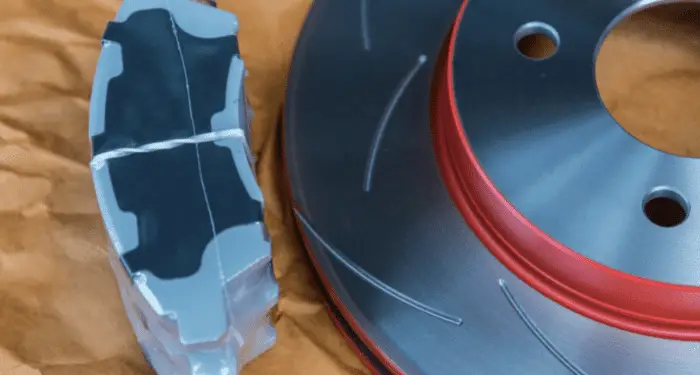
Here’s Why Your Brakes Are Grinding After New Pads and Rotors
1. Bedding New Brakes In
Bedding in or breaking in brake pads is a real thing. It seems weird that the brakes need to go through this when everything else on a car works like new the instant we change it.
No other car part has metal-to-metal contact at high speed as brakes do.
They don’t always grind when new, but this is the most common cause if yours are grinding. It shouldn’t worry you unless it is still happening after 100 miles of town driving or if your brakes feel unresponsive in any other way.
2. Debris or Dust On The Brake Rotors
Fitting new brakes is a dirty job. Each time brake pads are employed, they shed a bit of their material until they eventually need replacing.
Not all the dust created will disperse into the atmosphere or fall onto the road. Often small pockets will collect around the caliper or on lips on the rotors.
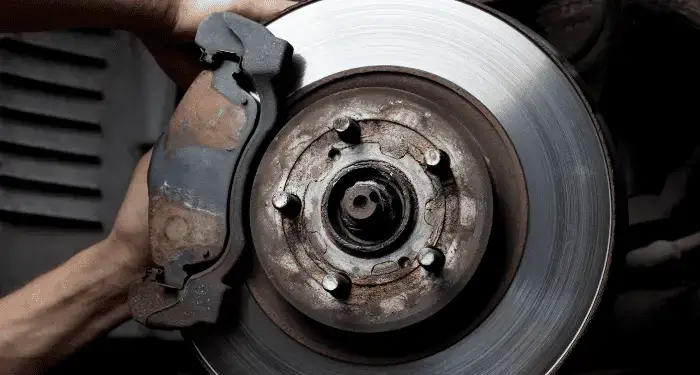
If these pockets of dust aren’t cleaned away thoroughly when new brakes are fitted, they can fall onto the new rotors – if these have been changed – or pads.
Sometimes rust on an older rotor can get stuck between the rotor and the pad and cause noise.
More of a squeal than a grind? Check out our New brakes squealing article.
3. Stone Trapped In A Pad
It might be a coincidence that the grinding noise has happened just after you’ve had new brakes fitted. Often what causes a grinding noise is a stone gets trapped in between the pad and the rotor. If your rotor is new, this will be easy to check.
By looking at the rotor – you should be able to do this without removing the wheel or any other parts – it should look uniform and not have deeper scratches on it in one area more than another.
If you notice that there’s a deep groove perfectly around the circumference of the rotor, then you’ll have a stone trapped. It’s a sure thing.
4. Worn Rotors
You can discount this if you’ve had your rotors replaced at the same time as your pads.
However, this is a common cause of grinding noises coming from your brakes, but if you’ve just had your brake pads changed, it’s unlikely to be the rotors.
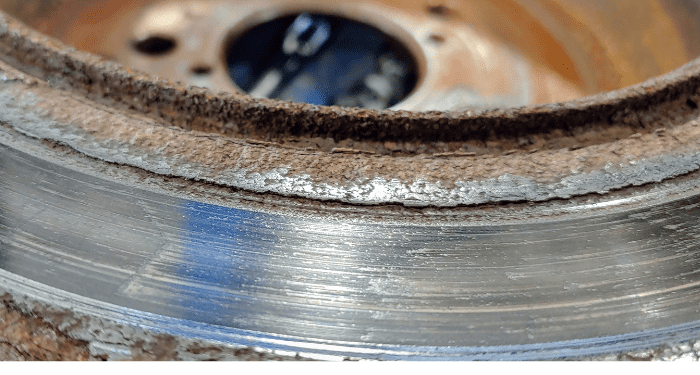
Confused? It does seem a bit of a weird statement, for sure. The thing is, no mechanic in the world won’t tell you that you need new rotors if worn when you’ve gone into have your pads changed.
For one reason, brakes are a safety feature, and if you were to be involved in a crash after having a brake service and weren’t told the rotors were bad, they could be sued by you or your family.
Secondly, if you need brake rotors and pads, a mechanic can make more money – I’m not saying they are shady at all – from the brake rotor markup, they’ll charge and the labor fees. It’s business.
For them, it makes perfect ethical and financial sense to let you know if your rotors were bad.
5. Brake Splash Guards and Dust Covers
These parts stop dirt from coming up from the road and into your pads and rotors. It’s possible that it got knocked or bent while fitting your pads and/or rotors.
These could, in extreme circumstances, rub and cause a grinding noise.
6. Wheel Bearings Gone Bad
Sometimes the rotor won’t budge and is rusted and stuck on the wheel.
When this happens, a mechanic will hit the rotor with a hammer to free it. They’re generally really careful to make sure it’s just the rotor that gets whacked but sometimes the wheel assembly might take a hit too.
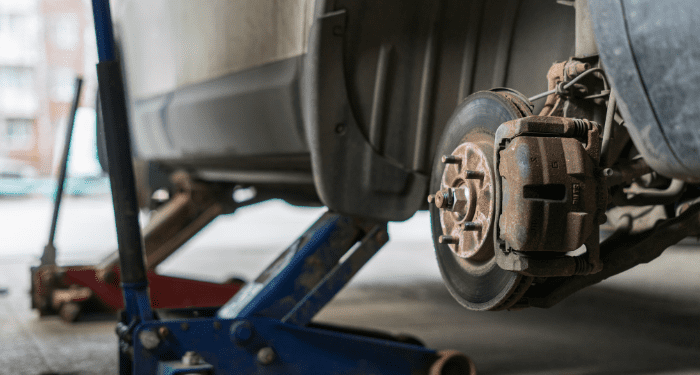
Normally, this would create problems for your wheel bearings, but if they were about to go bad, it could be the final thing that makes them fail.
As you probably know, a wheel grinding noise is almost always worn wheel bearings.
7. New Rotors Fitted Incorrectly
If you haven’t had your rotors replaced but only pads, this isn’t a cause that will affect your car.
It is difficult to fit rotors the wrong way around, but it can be done, especially with slotted rotors. The rotors would have to be forced onto the wheel, alerting any mechanic or DIY’er that there’s something wrong.
Unless you’re experiencing vibration when braking, this is an improbable cause.
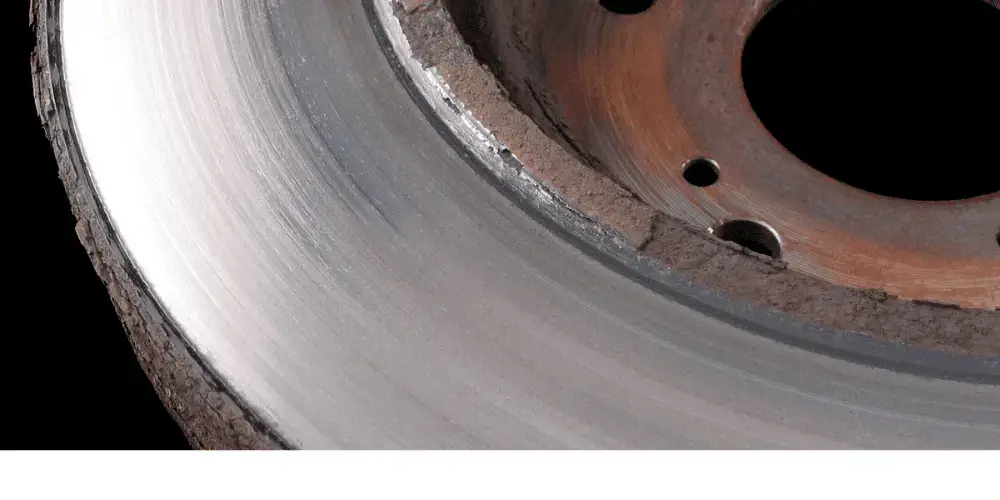
8. New Pads Fitted Incorrectly
Once again very difficult to do but possible on some cars or with certain brands of pads. If they are installed like this, you’ll hear a grinding noise.
This will be because the friction material faces outwards rather than inwards against the rotor.
It’s doubtful, though, as the pads are curved, they wouldn’t fit snugly into the caliper the wrong way around.
In Summary
The three most likely causes of your new brakes grinding are first; they need time to bed in.
If you do more city driving, they should bed in fewer miles – as you’ll be using them more – than a car owner that spends most of his time on the freeway.
Next, If the noise hasn’t gone or is getting worse, a piece of rust or dirt likely got stuck during the change – especially if the rotors were changed and not just the pads.
The last common reason is checking for a stone stuck in the pad. Do this by looking for a possible circular scratch on the rotor.
